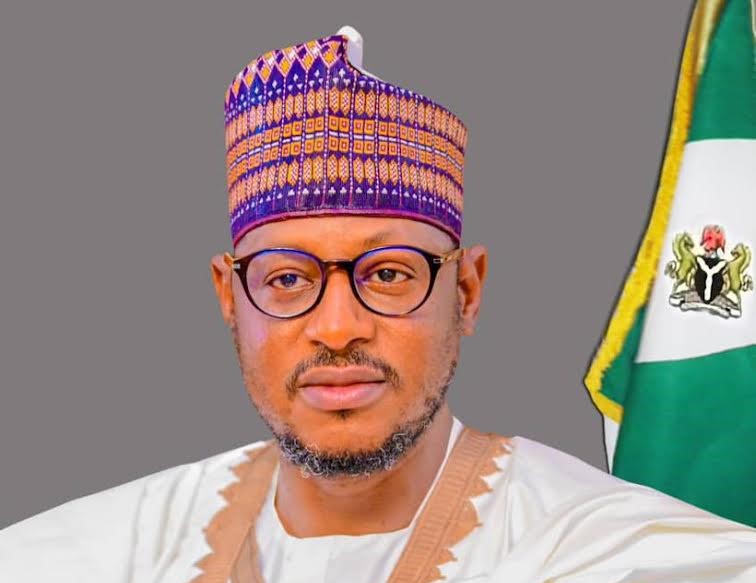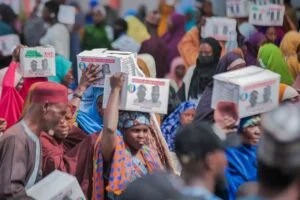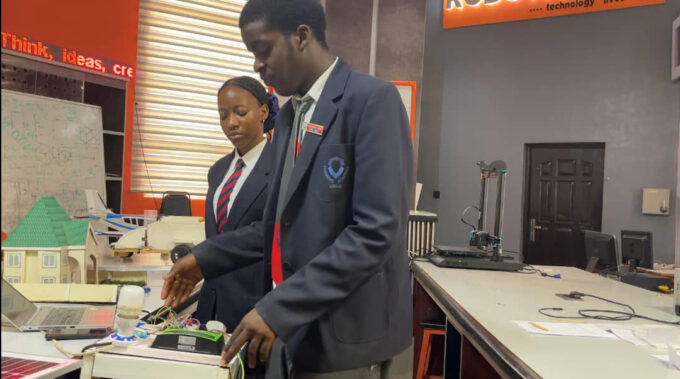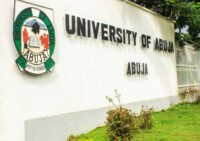In a determined push to combat food insecurity and drive sustainable agriculture, Governor Dikko Umaru Radda of Katsina State is pioneering a bold shift from rain-dependent farming to year-round irrigation agriculture. Through massive investments, strategic policies, and the creation of the Katsina State Irrigation Development Authority (KTIDA), his administration is not only boosting food production but also empowering rural communities, creating jobs, and building resilience against climate change, Francis Sardauna reports
In a bold stride toward achieving food security and economic resilience, Governor Dikko Umaru Radda of Katsina State is transforming the state’s agricultural landscape from traditional rain-fed methods to a robust, all-year-round irrigation farming system.
At the heart of this transformation is the establishment of the Katsina State Irrigation Development Authority (KTIDA)—a strategic body designed to drive the governor’s ambitious agricultural agenda.
Upon assuming office, Governor Radda recognised the critical importance of irrigation in building climate resilience and sustaining agricultural productivity. Through KTIDA, his administration is implementing sweeping interventions to revolutionise irrigation farming across the state’s 34 local government areas.
Massive Investments in Modern Irrigation
The Radda-led administration has so far invested over N8.2 billion in procuring and distributing 4,000 powered tillers, 4,000 solar-powered pumps, and 48,000 cartons of chemical fertilisers for the 2024/2025 dry season farming. These efforts are already redefining farming practices across the state.
Additionally, the government has spent N3.3 billion on advanced machinery—including six tractor drill machines, three-wheeled air compressors, and a cutter suction dredger—for dredging earth dams and drilling boreholes to enhance irrigation coverage.
Repairs to major water bodies, including the Daberam, Bakori, and Sagawa dams, are underway. A pre-feasibility study is also being conducted to develop an integrated community resettlement plan in Danja and Kwanar Are.
The administration is further investing N5.8 billion to construct the Danja Dam and rehabilitate the Yashe Earth Dam in Kusada LGA—projects aimed at ensuring adequate and potable water supply for both farming and human consumption.
Reviving the Sabke Dam Irrigation Project
Governor Radda has also expressed readiness to support the federal government’s decision to revive the Sabke Dam Irrigation Project, which boasts a storage capacity of 30.6 million cubic meters and a dispensing rate of 495 cubic meters per hour.
“When resuscitated, Sabke Dam will serve as a catalyst for modern irrigation farming,” the governor noted. “It will reduce dependency on rain-fed agriculture and promote agribusiness development across Katsina State.”
Farmers Reap the Benefits
For many farmers in Katsina, this is the most significant agricultural shift in years.
“Before, we used to experience a lot of challenges as irrigation farmers. We hire a fuel pump machine every week and it is costly. But now, the state government has given me a solar-powered pumping machine and fertiliser free of charge,” said Hamisu Mohammed, a father of 11 from Bakori.
For Salisu Tasiu from Danja, the government’s intervention has been life-changing. “The government gave us improved seeds and fertiliser. My crop yields have increased by more than 70 percent. This has greatly improved my income and livelihood,” he said.
Kusada-based farmer Usman Mu’azu shared similar sentiments: “As I speak to you now, last week we planted tomatoes in one area after harvesting onions on the same farm. This irrigation project was long agitated for—we are happy that this administration came and actualised our dreams,” he said.
“Initially, we used to migrate to Kano and other parts of Kaduna State to work on plantation farms. But with this project, I won’t go anywhere again. I will remain here, work, and earn money.”
Another farmer, Abubakar Ishaku, appreciated the widespread support: “We are grateful to Governor Radda for supporting the expansion and rehabilitation of dams, and for assisting us with fertilisers, seedlings and modern tools. The reintroduction of irrigation farming is empowering our youth and reducing rural-urban migration.”
Government’s Scorecard in Agriculture
Speaking during a recent media chat, Deputy Governor Hon. Faruk Lawal said:“Irrigation farming plays a crucial role in addressing food shortage, poverty, and unemployment challenges bedevilling the country.”
He explained that under Governor Radda’s “Building Your Future” strategy, thousands of farmers have been empowered with 400 tractors, 2,000 hand planters, 400 water pumping machines, 10 combine harvesters, and knapsack sprayers, in addition to mechanised inputs worth N21.7 billion.
“This is with a view to providing our farmers with required agricultural implements to boost food production in the state,” Lawal said.
He further disclosed that the government has procured 20,000 metric tons of fertiliser and deployed 722 motorcycles to extension workers across 361 wards to support and monitor farming activities.
“Government has spent N790.5 million to upgrade zonal produce stores and revive the Songhai Farm Centre in Dutsin-Ma. We’re also promoting the cotton value chain for year-round farming to generate employment and economic growth,” he added.
He also mentioned that 150 women have been trained in backyard gardening and food supplement production to tackle child malnutrition.
A Need for Timeliness
While acknowledging the government’s efforts, some farmers are urging timely distribution of inputs.
“Farming largely depends on time. You must plant, apply fertiliser, and weed at the right time to get the best yield. If inputs come late, the crops will not perform well,” said Ibrahim Saminu, a farmer from Katsina.
“The government should begin the input distribution process ahead of the farming season to avoid delays.”
He further called for increased funding and broader access to farming inputs for smallholder farmers across the state.
A New Agricultural Era
Despite challenges, Governor Radda’s initiatives are reshaping Katsina’s agricultural future. The shift to irrigation farming is not just about boosting yields—it’s about empowering communities, creating jobs, reducing migration, and building climate resilience.
As Deputy Governor Lawal aptly puts it: “This is not just about farming—it’s about building a sustainable, self-reliant economy for the people of Katsina State.”
Quote
“Therefore, Radda is diversifying the Katsina state economy by upscaling agricultural productivity through viable investments and enhancing farmers’ capacity to plug into untapped opportunities across the sector’s value chain.”


















Leave a comment